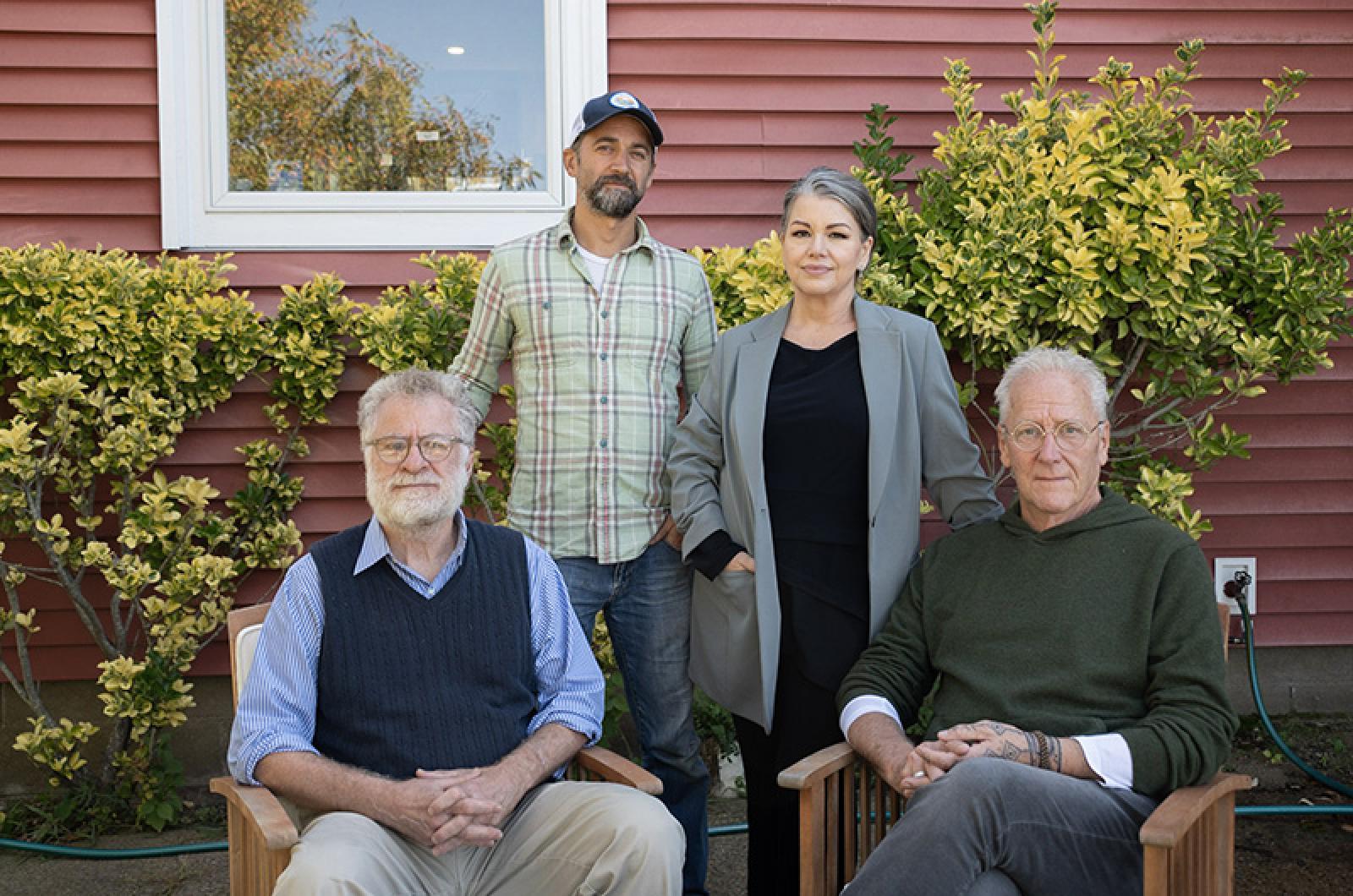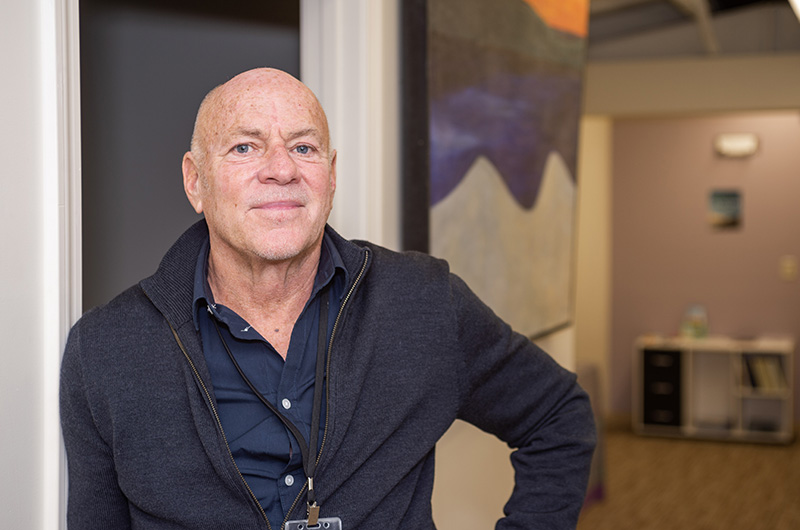The pandemic infiltrated and upended all aspects of life but for those in recovery, the isolation and excessive down time were especially difficult. In the aftermath, recovery professionals around the Island said they are still piecing together community needs — and working to get a key message out.
“A lot of people think the opposite of addiction is sobriety,” said Stacy Wise, outreach coordinator at the Red House Peer Recovery Support Center. “The opposite of addiction is connection.”
During the pandemic, recovery organizations scrambled to fill the increase in demand for their services. The Martha’s Vineyard Community Services’ recovery coaching program, which partners individuals with trained recovery coaches who are in recovery themselves, saw participation nearly double in 2020.
“We went from having 39 clients prior to March 2020, to having 75 in July,” said Robert Cropper, recovery management director at community services.
Brian Morris, the Mental Health and Substance Use Disorder Access Coordinator at Island Healthcare Initiative, said he continues to see similar increases in his recovery coaching program.
“I got three referrals just this morning,” he said in a recent interview. “That’s pretty typical now, but it never used to happen.”
Recovery coaching itself has expanded in recent years to an emphasis on individualized, peer-to-peer support at no cost to the person seeking treatment. Coaches must be in recovery for at least two years and participate in months-long training before they take on a client.
Both Mr. Morris and Mr. Cropper noted that despite the initial uncertainty, recovery coaches and the recovery community mobilized quickly during Covid, transitioning to tele-health and eventually adding outdoor, socially-distant walks to keep clients connected during the pandemic.
“Because all of our coaches have experience in recovery, they knew what it was like,” Mr. Cropper said. “They knew how much it would mean to someone to reach out and make that phone call.”
Then, as pandemic social distancing restrictions decreased, recovery programs continued to adapt and incorporate new ways to reach out and connect with individuals.
Since re-opening last fall, the Red House Recovery Support Center has expanded its membership to 170 individuals, offering regular in-person peer recovery lunches, yoga classes and new events suggested by members. The center also offers meetings in Portuguese and online, the latter of which hosts members from across the country.
Funded by the state and staffed by specialists with direct experience in recovery, the center ties its wide variety of activities to one core philosophy.
“This is recovery from the bottom up,” said volunteer coordinator David Grant. “We’re not telling you what to do . . . we let the members come to us with what they need.”
Today, both Martha’s Vineyard Community Services and Island Healthcare Initiative offer in-person and online coaching to keep their services accessible, but Mr. Morris acknowledged that some individuals may have been left behind in the transition.
“There are people I used to see in [AA] meetings every day that I don’t see anymore,” he said.
Recovery officials said that despite the difficulties of the pandemic it helped increase awareness about the importance of accessible recovery services. Since 2020, Mr. Morris has been able to extend his recovery coach network to the Island school system as well as the house of corrections.
“Most of the people in [the house of corrections] are there because of drugs and alcohol,” Mr. Morris said, adding that nationally 85 per cent of the prison population has an active substance use disorder or was incarcerated for a drug-related crime. “I would guess on the Island it would be more than 90 per cent.”
Recently, Mr. Morris has also sought to address recovery through early intervention. His newest project, called Hub MV, works with community partners in healthcare, education and the criminal justice system to identify at-risk individuals and offer them support.
“We call them situations, not cases,” he said. “If someone [gets treated for an overdose] or crashes a car, we go to them the next day in plain clothes to offer services. I’ve done that about 100 times and only once has someone told me to firetruck off, if you know what I mean.”
Harm reduction is another form of intervention gaining traction in the recovery community. Instead of promoting total sobriety, harm reduction aims to meet individuals where they are by working to make drug usage safer.
“For some, abstinence is not the goal,” Mr. Morris said. “Some people aren’t going to quit, so then the question becomes how can they cut down or use more safely.”
The advent of fentanyl has drastically changed the landscape of substance overdose, Mr. Cropper added, since the deadly opioid has been found recently in everything from cocaine to marijuana. As a result, harm reduction tools such as at-home Narcan, which is used to reverse opioid overdoses, and over-the-counter fentanyl test strips have become more common. Many substance use programs on the Island offer both.
While Mr. Cropper acknowledged that Narcan can be helpful and life-saving, he said it is not a replacement for professional medical care.
“Please, please go to the hospital after you’ve been Narcanned,” he said.
Even as more individuals seek services, Mr. Cropper believes the message could go further.
“I’d like to see more young people [reaching out,]” Mr. Cropper said. “It can be difficult for younger people to feel comfortable if they get there and don’t see people their own age.”
Most of all, Mr. Cropper hopes programs like the Red House help break through the stigma around substance use disorders and give people a sense of purpose and fellowship after a long period of disconnection.
“We try to offer alternatives, offer things to do besides using drugs and alcohol,” he said. “It’s kind of like the life you put down. It’s a chance to begin rebuilding it.”








Comments
Comment policy »